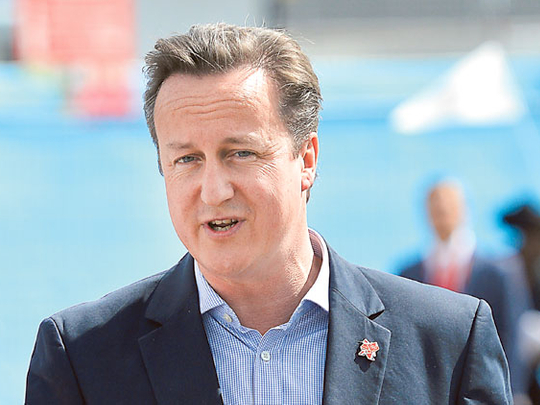
London: David Cameron is poised to announce the abandonment of House of Lords reforms and fill the resulting void in the government’s legislative programme with measures to encourage economic growth and job creation.
Conservative sources were briefing over the past 24 hours that plans for Lords reform had been totally dropped after the prime minister concluded there was no way of getting an elected second chamber past his Conservative backbenchers in a form acceptable to his Liberal Democrat colleagues.
The decision would be a huge political blow to the Liberal Democrat leader, Nick Clegg, who has now seen plans for Lords reform and electoral reform for the Commons thrown out partly due to Conservative opposition.
It is almost certain that his party will respond by demanding that legislation designed to cut the number of MPs to 600 is also abandoned. The Lib Dems looked set to lose as many as 15 seats from a reform promoted by Cameron as a way of cutting the cost of politics and equalising the size of constituency electorates.
Lords reform and boundary reviews were not explicitly linked in the coalition programme, but some Conservative cabinet members recognise that Clegg will have to exact public revenge over the Lords rebuff if he is to keep his party committed to the coalition.
The Cameron decision, due to be formally announced this month, is likely to contribute to a turbulent mood at this autumn’s Lib Dem conference, where the business secretary, Vince Cable, is set to ask for a change in emphasis in economic policy the glue that has held the coalition together.
Lib Dem sources were clinging on to the hope that the briefings coming from the Cameron circle might prove premature. One senior Lib Dem source said he understood discussions were still ongoing.
But Conservative sources told the Guardian that Cameron had decided to abandon Lords reform and that the focus had shifted to legislation that could fill the slot set aside for an elected second chamber. A huge amount of parliamentary time as much as 14 days on the floor of the Commons has been allocated for the legislation in both houses of parliament.
One source said the replacement would be “jobs, jobs, jobs”, adding there had been a series of meetings on the issue in Downing Street on Thursday. Many Conservative MPs had criticised the Lords legislation on the basis that the public saw democratic reform as an irrelevance at a time of national austerity and unemployment.
Lib Dems are likely to blame Labour for part of the failure, pointing out that Ed Miliband would not commit his party to a programme motion for the committee stages of the bill a means of limiting the amount of time the bill would have spent being discussed on the floor of the Commons.
Miliband voted for a second reading, but would not have been able to take his parliamentary party with him if he committed to a programme motion. Some Labour MPs would oppose the programme motion out of principle, but others said it would represent too much co-operation with the government.
Ministers had looked at various slimmed-down versions of the reforms, such as replacing only the remaining hereditary peers with an elected element, but this proved unworkable, and likely to lead to a new set of objections from Tory MPs about a constitutionally unstable relationship between the two houses.












